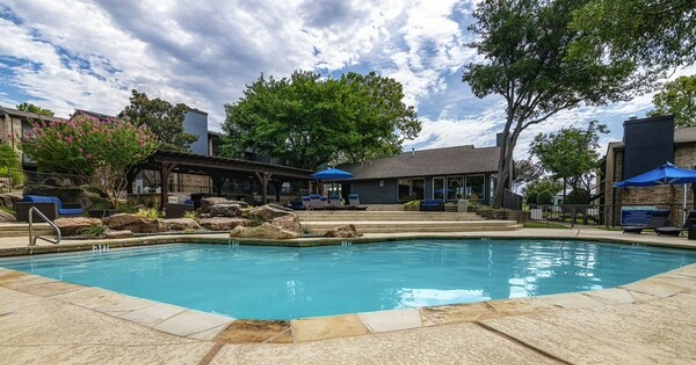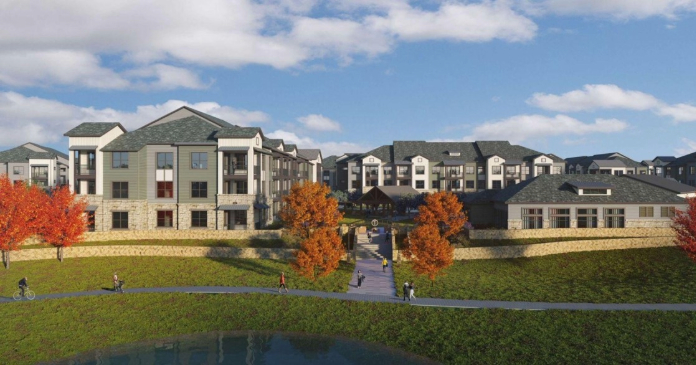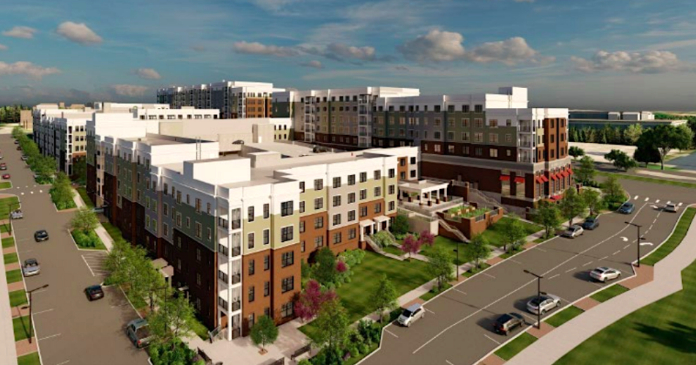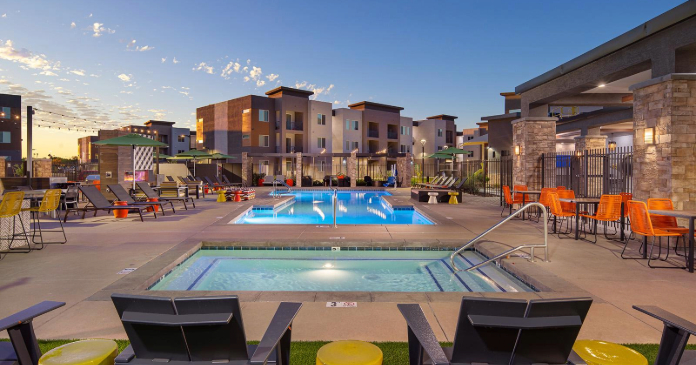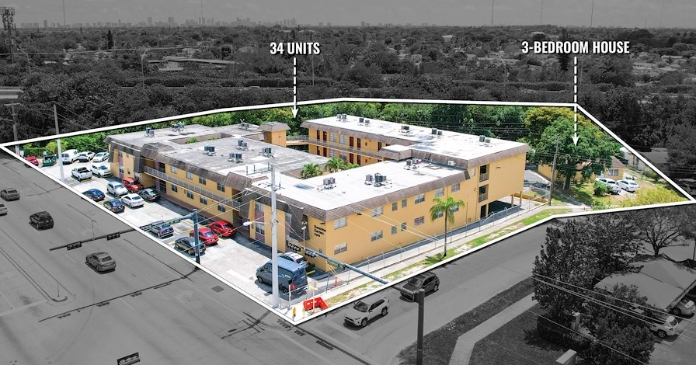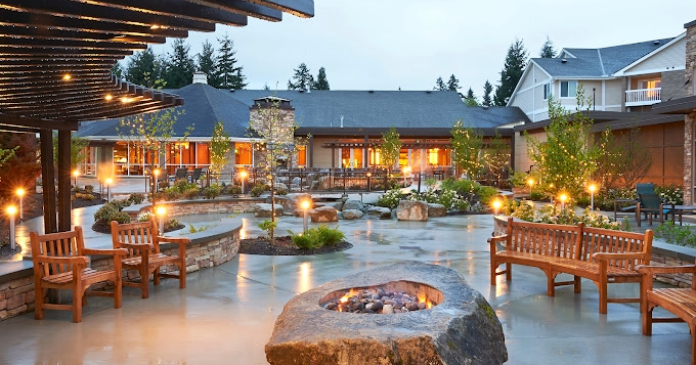
But it’s not just oil field workers who are feeling the squeeze for shelter. The police chief of one city has been living in a trailer for almost five months.
“It is home for now,” Seminole Police Chief Bernie Kraft told the Lubbock Avalanche-Journal. He’s been searching for a permanent home since he started the job in November, but the housing crunch has kept him in his 31-foot RV.
“The last few storms rocked me to sleep,” he told the paper. “I just consider it an extended camping trip.”
The Permian Basin oil boom, propelled by new technology, has revitalized cities in the area, flooding city coffers with new tax revenue, and sparking construction projects on a scale that residents haven’t seen since the famous boom (and notorious crash) of the early 1980s. Temporary workforce housing has become a fast business in the region, with multiple contractors building expansive “man camps” to house oil field workers.
While workers from out of state might expect less than ideal living conditions as part of the package, other residents are confused and angry that they’ve been priced out of their hometowns.
Sara Baca didn’t expect to move back in with her parents after she graduated last May. She has a full-time job at a retirement home, and hoped to save for her own house with her boyfriend. But they don’t have oil field salaries, and so couldn’t afford the market rate. “If I was a guy, I’d probably be out there too,” Baca says about the oil fields. “They don’t want women out there. The best I could do is an office job.”
The Craigslist pages for cities like Odessa and Midland are bursting with desperate pleas for housing, many specifying that the prospective tenants are not oil field workers.
One Odessa woman’s panicked ad explains that she’s been living in a hotel with her husband and two young children. “We were supposed to check out at 11 but we cant cause we dont have anywhere to go plz… im not asking for a hand out im asking for help renting something that is not 3000 to get into [sic],” she writes. “i have a job and my husband works but not in the oil field so we don’t make 4000 every 2 weeks.”
Kraft, the police chief, is less frantic about his situation. He hopes to find something better by the summer, and work is keeping him busy anyhow. “Anytime you get a booming population,” he said, “crime seems to come with it.”
In Odessa, Texas, which the Permian Basin oil boom has transformed into one of the fastest-growing cities in the U.S., trailers pack every spare patch of land. Hotels have had 100 percent occupancy for two years, reports Mike George, the president of the Chamber of Commerce, and apartments-despite soaring rents-often have year-long waiting lists.
Three large apartment complexes have been built in the last two years, and another three are under construction. The city is issuing new housing permits at a record pace, says George, but none of this is enough to keep up with relentless influx of people.
The school district is introducing 75,000 sq. ft. of portable buildings to house the additional children. “A mobile home, but it’s a classroom,” explains Ector County Superintendent Hector Mendez.
Even the hospital doesn’t have a way to house its new staff, so many live in a trailer park across the street, run by a male nurse. Nearly 60 percent of the homeless population in the city is homeless for the first time, according to a survey conducted last year.
“We want to grow-naturally any city wants to do it,” says Andrea Goodson, the city of Odessa’s public information coordinator. “But we have to step back and say we have to do this without hurting ourselves.”
But there are plenty of entrepreneurial minds looking to make a quick buck on the shortage. “A whole new aspect of the business just blew up in our face,” says Jason, the general manager of an outdoor living company in New Braunfels, Texas (who asked not have his surname published). The company originally marketed its cabins as back-of-house offices, or sleeping spots for the mother-in-law. But they were soon getting calls from oil field workers.
“We took advantage of the situation,” he says, “everybody else is.”
Author: Claire Gordon



